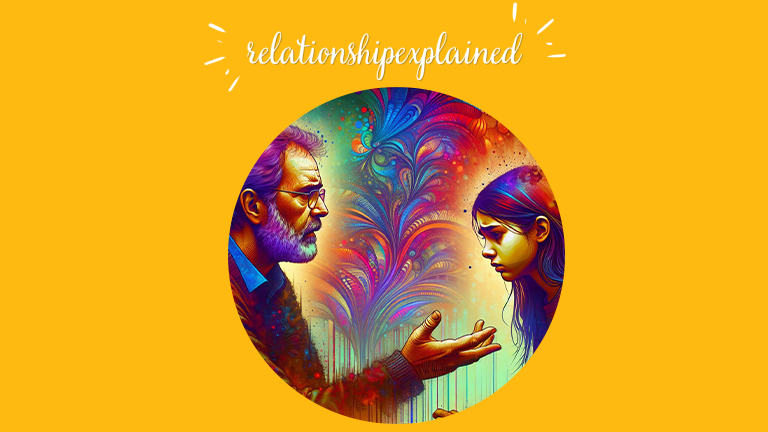You're Always Going to Suck at Relationships
Have you ever wondered why it feels like you're always destined to struggle in relationships? Navigating the complex world of romantic connections can often feel like an uphill battle, marked by a series of failed attempts and miscommunications that leave you questioning your ability to form lasting bonds. It's a common concern, and the good […]
Have you ever wondered why it feels like you're always destined to struggle in relationships?
Navigating the complex world of romantic connections can often feel like an uphill battle, marked by a series of failed attempts and miscommunications that leave you questioning your ability to form lasting bonds. It's a common concern, and the good news is, there's hope. By delving into the intricacies of relationship dynamics, recognizing and addressing underlying issues, and learning to cultivate healthier interactions, you can set the stage for more meaningful and enduring connections.
Well, we'll be going over:
- What are the foundational elements of a healthy relationship, and how can you strengthen them?
- How can identifying and resolving personal issues lead to improved relationship outcomes?
- In what ways can fostering a supportive network and maintaining individuality contribute to relationship success?
Let's dive in.
Key Takeaways
- Understanding relationship dynamics is key to success.
- Identifying and addressing problems is crucial.
- Fostering healthy relationships and navigating the dating world can lead to long-term success.
Understanding Relationship Dynamics
Building and maintaining healthy relationships is a challenging process that requires effort and understanding. You may feel like you are always going to suck at relationships, but with the right mindset and skills, you can improve your relationship dynamics and create fulfilling connections with others. In this section, we will explore some important aspects of relationship dynamics that can help you improve your relationships.
Communication and Trust
Effective communication is crucial in any relationship. It allows you to express your thoughts, feelings, and needs, and also helps you understand your partner's perspective. Good communication skills can help you build trust and intimacy in your relationships. Trust is the foundation of any healthy relationship, and it is built over time by being honest, reliable, and consistent. When you trust your partner, you feel secure and comfortable sharing your vulnerabilities and fears.
To improve your communication and trust skills, you can try the following:
- Listen actively and attentively to your partner.
- Express your thoughts and feelings clearly and honestly.
- Avoid blaming or criticizing your partner.
- Be open and receptive to feedback.
- Keep your promises and follow through on your commitments.
Patterns and Effort
Relationship patterns are the habits and behaviors that you and your partner develop over time. Some patterns can be positive, while others can be negative and harmful. Negative patterns can include things like criticism, defensiveness, stonewalling, and contempt. Positive patterns, on the other hand, can include things like empathy, kindness, and appreciation.
To improve your relationship patterns and effort, you can try the following:
- Identify negative patterns and work to change them.
- Practice positive behaviors and habits.
- Show appreciation and gratitude for your partner.
- Make time for each other and prioritize your relationship.
- Be willing to compromise and negotiate.
Boundaries and Sacrifice
Boundaries are the limits and rules that you establish in your relationships. They help you maintain your individuality and protect your emotional and physical well-being. Sacrifice, on the other hand, is the willingness to put your partner's needs and desires before your own. Sacrifice can be a positive aspect of a relationship, but it should not come at the expense of your own well-being.
To improve your boundaries and sacrifice skills, you can try the following:
- Establish clear boundaries and communicate them to your partner.
- Respect your partner's boundaries and expect them to respect yours.
- Be willing to compromise and find a middle ground.
- Avoid sacrificing your own needs and desires for the sake of the relationship.
- Practice self-care and prioritize your own well-being.
By understanding these important aspects of relationship dynamics, you can improve your relationships and create deeper connections with others. Remember that building healthy relationships takes time and effort, but the rewards are worth it.
Identifying and Addressing Problems
When it comes to relationships, it's easy to get stuck in a cycle of repeating the same mistakes. If you feel like you're always going to suck at relationships, it's important to identify and address the problems that are holding you back.
Dealing with Anxiety and Depression
Anxiety and depression can have a significant impact on your ability to form and maintain healthy relationships. If you struggle with these issues, it's important to seek help from a mental health professional. They can help you develop coping strategies and provide you with tools to manage your symptoms.
Recognizing Red Flags
It's important to be able to recognize the warning signs of a problematic relationship. Some common red flags include a lack of trust, poor communication, and controlling behavior. If you notice these issues in your relationship, it's important to address them head-on. Have an open and honest conversation with your partner about your concerns and work together to find solutions.
Overcoming Unrealistic Expectations
Unrealistic expectations can be a major barrier to healthy relationships. It's important to recognize that no one is perfect and that every relationship will have its ups and downs. Instead of expecting perfection, focus on building a strong foundation of trust, respect, and communication. Be willing to compromise and work together to find solutions to problems as they arise.
By identifying and addressing these common relationship problems, you can take steps to improve your relationships and break free from the cycle of repeating the same mistakes. Remember, building healthy relationships takes time and effort, but it's worth it in the end.
Fostering Healthy Relationships
Building and maintaining healthy relationships can be a challenging task, but it is possible. Here are some tips to help you foster healthy relationships in your life.
Building Intimacy and Trust
Intimacy and trust are the foundation of any healthy relationship. To build intimacy, you need to be open and honest with your partner. Share your thoughts, feelings, and experiences with them. Listen actively and show empathy towards their feelings. This will help you understand each other better and build a deeper connection.
Trust is built over time through consistent actions and communication. Keep your promises and be reliable. Avoid lying, cheating, or hiding things from your partner. If there are issues in the relationship, address them openly and work together to find a solution.
Maintaining Individuality and Self-Esteem
In a healthy relationship, both partners should maintain their individuality and self-esteem. This means respecting each other's boundaries, interests, and goals. Encourage each other to pursue your passions and hobbies. Give each other space and time to recharge.
It's important to also maintain your self-esteem. Don't rely on your partner to validate your worth. Take care of your physical and emotional health. Set boundaries and communicate your needs clearly. Remember that you deserve to be treated with respect and kindness.
Cultivating Support Systems
Having a support system outside of your relationship is important for your overall well-being. This can include friends, family, or a therapist. These people can provide emotional support, advice, and a different perspective. They can also help you maintain a healthy balance between your relationship and other areas of your life.
In summary, fostering healthy relationships requires open communication, trust, respect, and support. By following these tips, you can build and maintain strong, fulfilling relationships in your life.
Navigating the Dating World
Navigating the dating world can be a daunting task, especially if you're single and looking for love. There are so many factors to consider, from online dating to expressing your feelings, to knowing when to walk away. In this section, we'll explore some tips and tricks to help you navigate the dating world with confidence and ease.
Online Dating and Attraction
When it comes to online dating, it's important to be honest about who you are and what you're looking for. Create a profile that accurately represents you and your interests. Use clear, recent photos and avoid using overly filtered or edited pictures. When browsing potential matches, take the time to read their profiles and get to know them before initiating contact.
Attraction is a crucial component of any successful relationship. While physical attraction is important, it's also essential to be attracted to someone's personality and values. Look for someone who shares your interests and has similar goals and values.
Flirting and Expressing Feelings
Flirting is a great way to show someone that you're interested in them. Use humor, compliments, and light touches to convey your interest. However, it's important to be respectful and avoid crossing any boundaries.
When it comes to expressing your feelings, it's important to be clear and direct. Don't be afraid to let someone know how you feel, but also be prepared for the possibility of rejection. Remember that rejection is not a reflection of your worth as a person.
Recognizing When to Walk Away
Knowing when to walk away from a relationship is just as important as knowing when to pursue one. If you find yourself in a relationship that is unhealthy or unfulfilling, it may be time to move on. Don't be afraid to end a relationship that is not serving you, even if it's difficult.
In conclusion, navigating the dating world can be challenging, but with the right mindset and approach, it can also be an exciting and rewarding experience. Remember to be true to yourself, communicate clearly, and always prioritize your own well-being.
Commitment and Long-Term Success
Building and maintaining a successful long-term relationship requires a lot of effort and commitment. It's not always easy, and there are times when you might feel like giving up. However, if you're committed to making it work, you can overcome any obstacles that come your way.
Understanding Commitment
Commitment is a crucial factor in any relationship. It means that you're willing to put in the time and effort to make things work. You're willing to be there for your partner, even when times are tough. Without commitment, it's difficult to build a strong and lasting relationship.
Cheating and Consequences
Cheating is one of the most destructive things that can happen in a relationship. It's a betrayal of trust and can cause a lot of pain and heartache. If you cheat on your partner, there will be consequences. You might lose their trust, and it could be difficult to regain it. It's important to be honest and open with your partner if you're struggling with temptation. Cheating isn't worth the risk of losing the person you love.
Planning for the Future Together
Planning for the future is an essential part of building a successful long-term relationship. It's important to have shared goals and aspirations. You should discuss your plans for the future with your partner and work together to achieve them. Whether it's buying a house, starting a family, or traveling the world, having a shared vision for the future can help strengthen your bond.
In conclusion, commitment is the foundation of a successful long-term relationship. It requires effort, dedication, and a willingness to work through challenges together. Cheating can be a major setback, and it's important to be honest and open with your partner if you're struggling. Planning for the future together can help you build a shared vision and strengthen your bond.
Frequently Asked Questions
How can I improve my skills in maintaining relationships?
Maintaining healthy relationships requires effort and communication. Some ways to improve your skills include actively listening to your partner, expressing your emotions clearly, and practicing empathy. You can also take time to reflect on past relationships and identify patterns or behaviors that may have contributed to their failure. Seeking the help of a therapist or relationship coach can also provide valuable insights and guidance.
What are the common indicators of a failing relationship?
Some common indicators of a failing relationship include lack of communication, loss of intimacy, frequent arguments, and a lack of trust. It is important to address these issues early on and work towards finding solutions. Ignoring or avoiding these problems can lead to further deterioration of the relationship.
Why do I tend to rush into relationships, and how can I slow down?
Rushing into relationships can be a sign of insecurity or fear of being alone. It is important to take time to get to know someone before committing to a relationship. Slowing down can involve setting boundaries, taking time for self-reflection, and being honest with yourself and your partner about your intentions and feelings.
What factors contribute to the short lifespan of modern relationships?
Modern relationships can be affected by a variety of factors, including unrealistic expectations, lack of communication, and a focus on individualism over partnership. Social media and technology can also contribute to a lack of intimacy and connection. It is important to identify these factors and work towards finding solutions to improve the quality and longevity of relationships.
Is it common for people to feel like giving up on finding love?
Feeling like giving up on finding love is a common experience, especially after experiencing heartbreak or disappointment. It is important to remember that finding love takes time and effort, and that everyone experiences setbacks along the way. Practicing self-care, building a strong support system, and staying open to new experiences can help you stay motivated and optimistic.
How can one cope with the feeling of inadequacy in relationships?
Feeling inadequate in relationships can stem from a variety of sources, including past traumas or negative self-talk. It is important to identify the root cause of these feelings and work towards healing and self-improvement. Seeking the help of a therapist or counselor can provide valuable support and guidance in this process. Practicing self-compassion and building a positive self-image can also help alleviate feelings of inadequacy.












